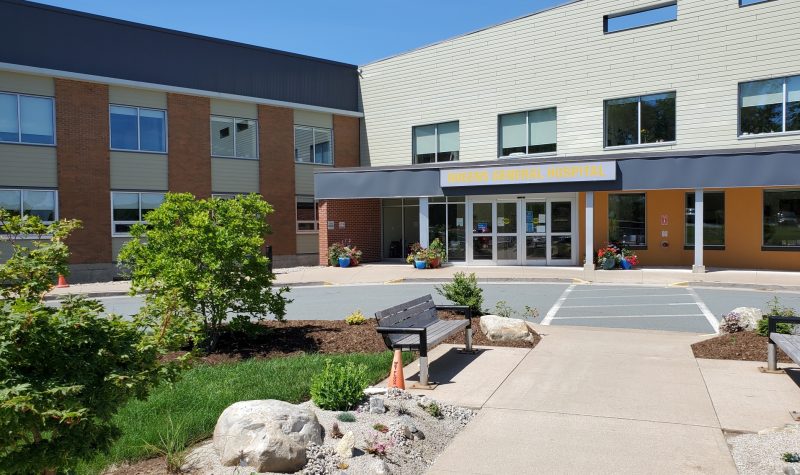Difficulty attracting new doctors is one of the factors that contributed to the closures experienced by the Queens General Hospital Emergency department over the past couple of weeks.
This was the first time since the hospital opened a doctor couldn't be found to work the shift.
But chair of the Queens General Hospital Foundation Al Doucet says the issue extends beyond the emergency room.
“The problem is that there’s not enough supply of health professionals, and that’s just not physicians. It’s nurses, it’s CNAs, it’s LPNs, it’s lab technologists, it’s across the board,” said Doucet. “To look after our population that is aging, we have not been able to keep up the supply of health professions that are needed.”
Doucet has been recruiting doctors to Queens for the better part of 40 years and says the pandemic has thrown a wet blanket on their efforts.
“One of the things you do with recruiting, you want to bring people into the communities so they get a feel of where they would want to move and work, and with COVID[19], we couldn’t do that,” said Doucet. “We couldn’t bring people in, so for almost two years, it’s really stymied our recruitment abilities.”
Doucet says, overall, the provincial healthcare system is struggling to keep up with demand, and because so many Nova Scotians don’t have access to primary care, they are now turning to the emergency room for treatment. But many general practitioners who take shifts in the ER find it difficult to then spend the day seeing patients in the office.
“In the past, the emergency departments used to be seen more for just emergencies, so the people manning it could at least get a rest while they were doing it then have an office the next day. That can’t happen anymore,” said Doucet. “Our emergency departments are pretty steady because people don’t have family doctors so they have no other option but to go to the emergency department.”
Doucet has also seen a shift in the way medical schools train doctors.
He would like to see those schools return to the methods he was taught, where doctors were trained as generalists before deciding to move into a specialty.
“One of the good things about that was, that the specialists that came from that kind of a training environment understood what it was like to work in family practice, understood what it was like to have people referred to them. They had a much broader understanding so they didn’t become very narrow in their scope of practice. They looked at the patient more as a whole,” said Doucet.
He says the problems with the healthcare system are complex and likens the situation to a pyramid, with primary care as the base and other specialized care piled on top.
“In the last eight years I don’t think the emphasis has been on the bottom of that pyramid. There’s been a lot of emphasis on other things and those other things are important, I don’t minimize that,” said Doucet. “But fixing the bottom of that pyramid in the last eight years has not been the primary focus and I think that’s why we’re in the situation we’re in now.”
Reported by Ed Halverson
E-mail: edhalversonnews@gmail.com
Twitter: @edwardhalverson
To listen to the broadcast of this story, press play below.


